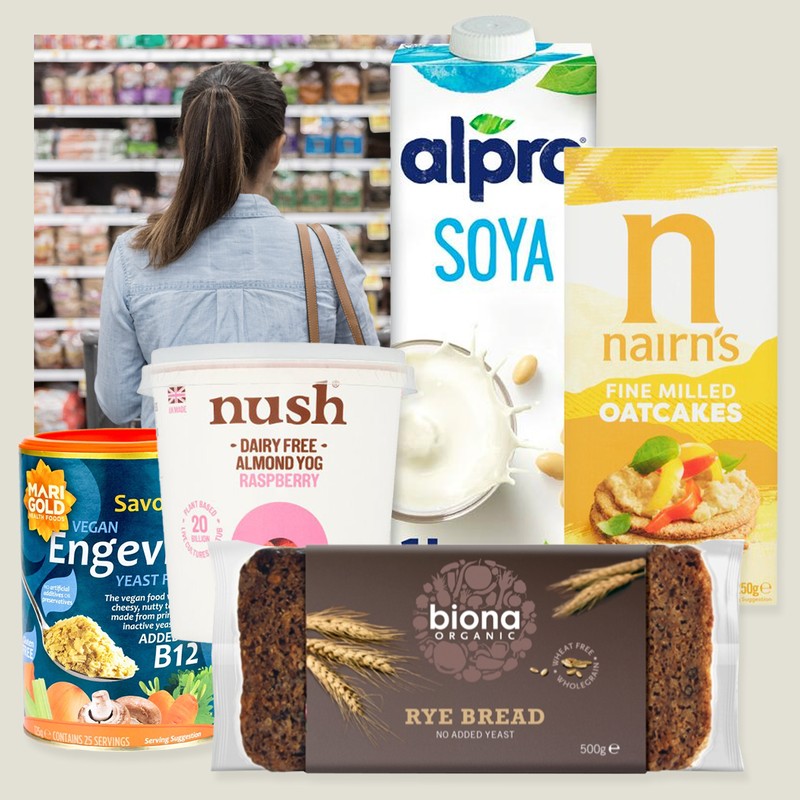The ‘Healthy’ Foods Nutritionists Want You To Ditch
Clarissa Lenherr says...
Nutritionist
Meat Substitutes
Meat substitutes have exploded in popularity over the past few years, but while reducing meat and dairy consumption may benefit the environment, it doesn’t always mean it is better for your health. Many of these meat substitutes are ultra-processed and filled with thickeners, emulsifiers, fillers, colourings, sugar and lots of salt. Look out for ingredients such as dextrose, carrageenan, methylcellulose, and dried glucose syrup – all things you wouldn’t find in your kitchen cupboard. These replacements can contain up to six times more sodium than a regular chicken breast, with some plant-based burgers containing more sodium and as much saturated fat as a real beef burger. Plus, meat alternatives tend to be lower in nutrients such as zinc, b12 and iron, and also tend to be on the lower side when it comes to protein content.
Swap it for…
If you want to reduce or eliminate your animal product consumption, try to stick to the minimally processed meat alternatives that are made from whole foods such as pulses or pea protein. Always check the ingredients list and ensure you are familiar with them. If the ingredients list is overly long and contains words you can’t pronounce, it may be best to stick with tofu or make your own bean burger which will most likely be higher in plant-based protein, fibre and other gut-loving nutrients. My meat replacements of choice are always tofu, tempeh or beans and lentils. I like to oven-bake my tofu to get it extra crispy or I opt for Tiba Tempeh curry-spiced pieces when in a rush. They are seasoned with organic spices, tomato, onion and garlic and they make the perfect addition to a plant-based curry.
Visit ClarissaLenherr.com
Ailsa Hichens says…
Registered nutritional therapist & health coach
Protein Bars
‘High protein’ has become a buzz word in the marketing world, which means all kinds of products get labelled as such so consumers think they are making healthy food choices. However, these products are often high in sugar. Some contain more than 30% sugar so they stand a good chance of spiking your blood sugar levels while delivering their protein, which can lead to energy dips later in the day – and weight gain. It's not just the big confectioners to watch out for. When one of the main ingredients is dates, rice syrup or grape juice concentrate, beware. While these might be natural sugar alternatives, the effect on your blood sugar will be the same.
Swap it for…
I love the Nibble Protein range because it is far lower in sugar – natural or otherwise – while still being delicious. It’ll keep your sugar (and energy) levels balanced and can be used as part of a low carb diet. My favourites are the Choc Choc Chip and the Cookie Dough.
Visit FoodFabulous.co.uk
Karine Patel says…
Registered dietitian & founder of Dietitian Fit & Co
Vegan Cheese
Vegan alternatives to cheese may look similar, but the ingredients and nutritive value are completely different. Most vegan cheeses are made from water, coconut oil and starch which basically means you are eating oil mixed with starch. A lot of these products also contain a long list of additives which makes them highly processed. They can also contain no protein and zero calcium.
Swap it for…
If you are missing the taste of cheese, I would strongly recommend trying nutritional yeast, which is a deactivated yeast and extremely nutritious. It is an excellent source of vitamin B12, and is rich in minerals and protein. It is low in sodium, low in fat, as well as sugar-free, gluten-free and vegan. Nutritional yeast is sold as thin flakes. It has a very similar taste to parmesan – nutty, salty and rich.
Visit DietitianFit.co.uk
Holly Zoccolan says...
Nutritional expert at The Health Zoc
Multigrain Bread
Multigrain bread actually contains high levels of sugar, salt, gums and refined vegetable oils – just because the bread is brown and contains some seeds doesn’t make it good for you. In fact, the high sugar content leads to blood sugar spikes which cause weight problems and mood swings. The vegetable oil content is also alarming – vegetable oils such as sunflower oil and rapeseed oil are highly inflammatory and should be avoided.
Swap it for…
Pure organic sourdough or rye bread are great alternatives. Sourdough contains higher levels of vitamins, minerals, and antioxidants, as well as lower levels of phytate so your body can absorb the nutrients more easily. Similarly, rye bread is high in iron, potassium, calcium, zinc and soluble fibre – try the brand Biona, which I really rate.
Visit TheHealthZoc.com
Alina Gromova-Jones says…
Nutritional therapist & co-founder of KOJO
Yoghurt
Yoghurt has fantastic gut-boosting properties and can be a great source of protein, but mainstream yoghurt products can be mistaken as being healthy when actually they’re full of added sugar – hello upset stomach and unbalanced blood sugar. Beyond our daily intake, excess sugar can cause bloating and raise our blood sugar levels, resulting in excess sebum, greasy hair and oily skin.
Swap it for…
Try dedicating some extra time in the supermarket to read the label and check for unwanted ingredients. Nush Foods’ Almond Yoghurt contains no added sugar, artificial flavours, sweeteners or thickeners. Then, add some raspberries, dried mulberries or peanut butter for flavour and natural sweetness.
Alice Yeates says…
Nutritional therapist
Rice Cakes
So many people are misled by snacks which they believe are healthy – interestingly, these foods are often tasteless and less than satisfying, leaving you wanting more. The key to healthy eating is opting for nutritionally dense foods that taste good and leave you feeling more satisfied. Being healthy is more about nutrients than calories. It's useful to be aware of the nutritional content of foods and to understand how making the right choices can help you feel fuller for longer, whilst also boosting your energy and cognitive function. Rice cakes are aerated so deceivingly look larger and may be perceived as more substantial. However, they are low in essential nutrients and contain little or no fibre or good fat, meaning they are digested very quickly, leaving you feeling hungry.
Swap it for…
Surprising to some, oatcakes and rice cakes are about the same weight and calories, but gram for gram, oatcakes are far more nutritious. They are full of fibre and contain good fats, making them slower to digest, leaving you satisfied and less likely to reach for more. Due to their slow energy release, they don’t tend to spike blood sugars in the same way that rice cakes do, so won’t cause that all-too-familiar post-meal afternoon slump. I like Nairn’s best.
Jess Hillard says…
Nutritionist
Dark Chocolate
Commonly thought of as the ideal healthy sweet snack, certain dark chocolate brands do in fact have a particularly high sugar content. Sugar has detrimental impacts on the body from causing tooth decay to increasing the risk of type 2 diabetes and heart disease. It can also lead to an increase in weight gain, has been seen to raise the risk of cancer and can have a large effect on skin health (linked to acne). Cutting down on sugar will allow the body to have more regular blood sugar levels, and help you enjoy more sustained energy throughout the day rather than spiking and then suddenly dropping. You may also see your skin looking clearer and having a natural glow. Altering your diet in this way could see some weight loss too.
Swap it for…
If you’re a chocolate fanatic looking for a healthy alternative, I really rate the Warrior CRUNCH bars. They contain up to 20g of high-quality milk protein, less than 3g of sugar per bar and come in a variety of delicious flavours. They’re the perfect option when you are trying to cut down on sugar but don’t want to give up your favourite treats.
Visit TeamWarrior.com
Dr Claire Shortt says…
Nutritionist & lead scientist at FoodMarble
Agave Syrup
‘Healthier’ sugar replacements like agave syrup may be seen as a good alternative to keep things sweet. However, the level of fructose is significantly greater than in table sugar. When we eat too much fructose it can present potential complications for our body. This includes putting too much pressure on our liver, as well as the onset of digestive symptoms. When we eat more fructose than our body can digest in one sitting, we may experience excess gas and looser stools.
Swap it for…
Choosing raw and non-processed agave is advised, as some contain high-fructose corn syrup – so always check the label. Importantly, it’s always advised to keep the portion size to a minimum. Challenge yourself to keep decreasing how much you add, and quite quickly, you will not need it. Alternatively, your sugar hit from fresh, sweet berries and melons, can help curb your sugar cravings too.
Visit FoodMarble.com
Penny Weston says…
Fitness, wellness & nutrition expert
Plant-Based Milk
Many plant-based milks, especially the flavoured varieties, are full of sugar and fat and not that healthy. They can also be loaded with oil, salt and thickeners. Putting it plainly, your plant-based milk should consist of pressed almonds/rice/oats/coconuts with a bit of water. A lot of ‘barista’ style plant-based milks contain sunflower oil but, if these oils aren’t stored properly, they can oxidise and cause harm to our cells. If you are removing dairy from your diet, you should also consult a doctor or nutritional therapist to ensure you are consuming enough calcium from other sources.
Swap it for…
Cow’s milk is naturally rich in protein, calcium, potassium, B vitamins and vitamin D – all things that plant-based milks don’t provide enough of. If you want a non-dairy milk alternative that’s higher in protein and nutritionally closer to cow’s milk, I recommend soy milk. Drinking soy milk may also help reduce your cholesterol, blood pressure, and breast cancer risk. My favourite is the Alpro Soya Milk.
Visit PennyWeston.com
Shop The Product Edit...
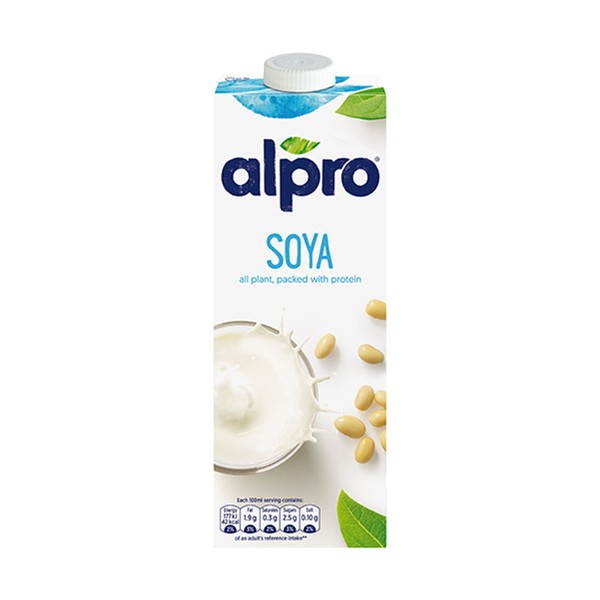
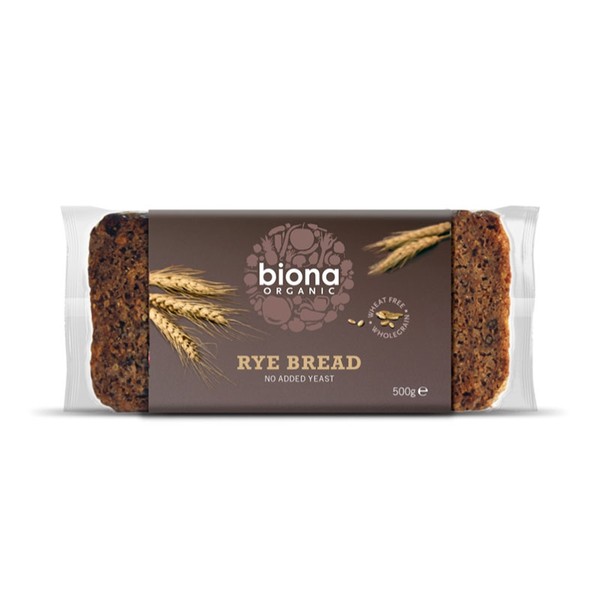
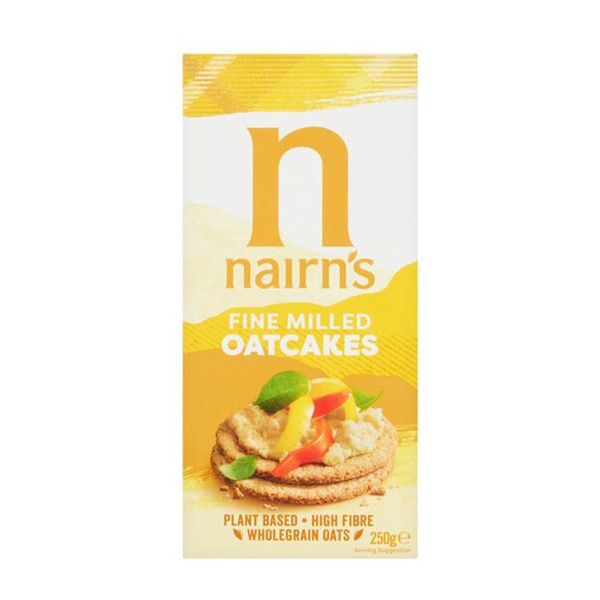
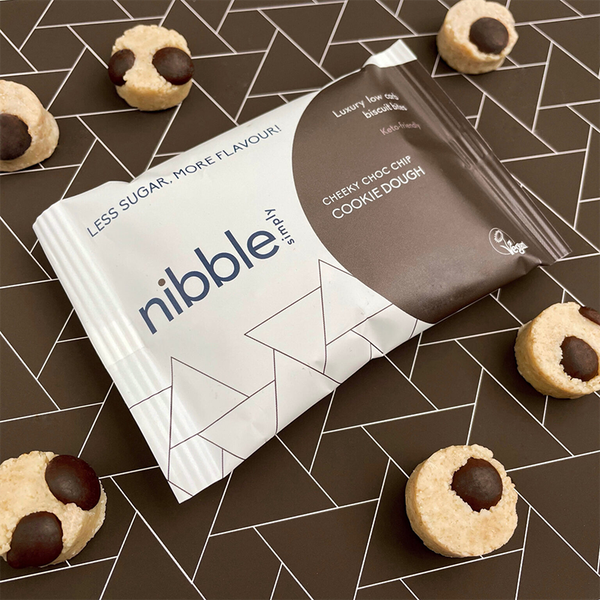
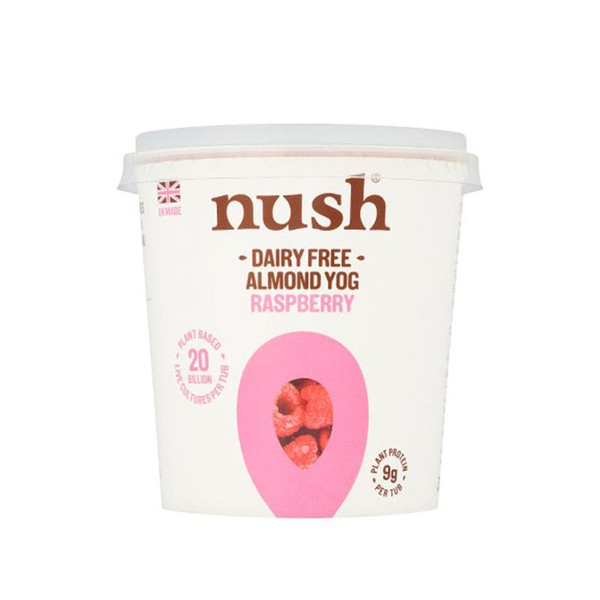
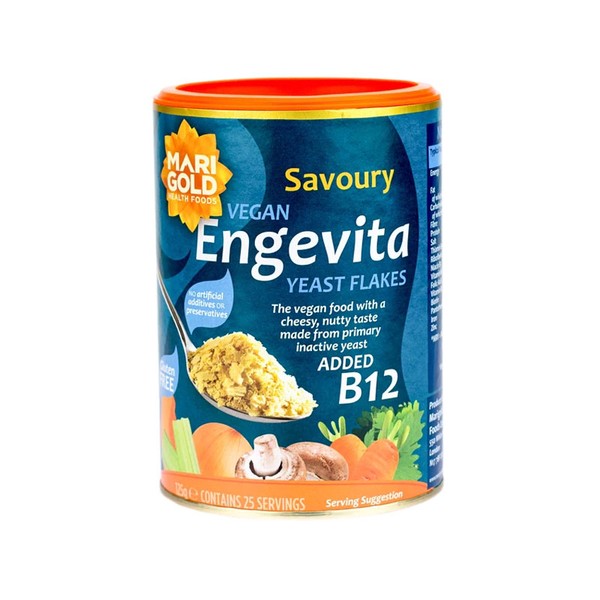
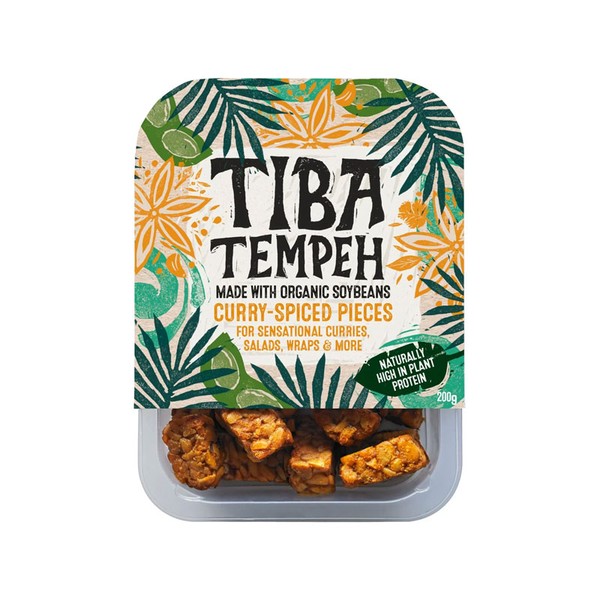
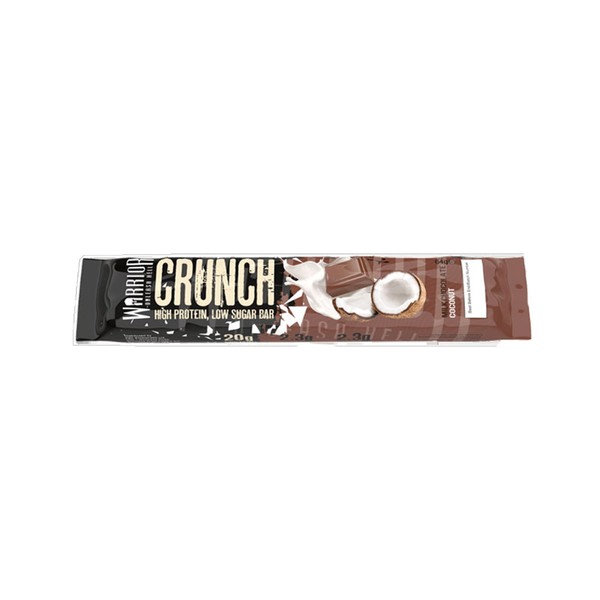
DISCLAIMER: Features published by SheerLuxe are not intended to treat, diagnose, cure or prevent any disease. Always seek the advice of your GP or another qualified healthcare provider for any questions you have regarding a medical condition, and before undertaking any diet, exercise or other health-related programme.
DISCLAIMER: We endeavour to always credit the correct original source of every image we use. If you think a credit may be incorrect, please contact us at info@sheerluxe.com.
